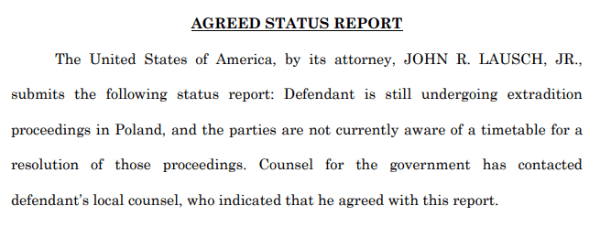Russia Has Permanently Blocked 3,400 Pirate Resources
dimanche 22 juillet 2018 à 12:25 After years of criticism from both international and local rightsholders, in 2013 the Russian government decided to get tough on Internet piracy.
After years of criticism from both international and local rightsholders, in 2013 the Russian government decided to get tough on Internet piracy.
Sites engaged in Internet piracy can now find themselves blocked by ISPs, who render them inaccessible to local citizens.
Several years on, Russia is still grappling with a huge piracy problem that refuses to go away. It has been blocking thousands of sites that allegedly engage in copyright infringement. Some of the blocks are lifted when sites comply but for those that repeatedly flaunt the rules, tougher punishment lies in wait.
Sites that continuously offer unauthorized content or links to that content can now be subjected to what is known locally as the “permanent lock”. Infamous torrent site RuTracker, for example, has been permanently blocked in Russia for some time but ever since its addition the list has been growing exponentially. This week the scale of the effort was revealed.
According to local telecoms watchdog Roscomnadzor, more than 3,400 online resources where “multimedia content was repeatedly and improperly placed in violation of copyright” have been placed on Russia’s national Internet blacklist.
The sites and services have been blocked on the orders of two authorities, the Moscow City Court and the Ministry of Communications.
The Court, which handed down 302 blocking decisions, deals with cases against torrent trackers, streaming sites and music services based on complaints from rightsholders. When sites are determined to be non-compliant and/or repeat infringers, they are ordered to be blocked.
The Ministry, which handed down 2,286 decisions, deals with mirror and clones of sites that have been previously blocked by the City Court. Whenever such a site appears, to facilitate access to RuTracker, for example, it can be dealt with relatively swiftly.
The 3,400 permanently blocked resources are also forbidden from appearing in search results, a point highlighted by Roscomnadzor.
“The search engines Yandex, Mail.ru, Rambler, Sputnik and Google that have been operating in Russia have stopped issuing information about pirated Internet resources blocked on an ongoing basis,” the telecoms watchdog announced.
Earlier this month, Roscomnadzor revealed that efforts to block pirate resources increased in 2018, with the watchdog acting upon hundreds of decisions from the Moscow City Court.
“During the first half of 2018, Roscomnadzor received 791 decisions of the Moscow City Court on the adoption of preliminary provisional measures [blocking] aimed at protecting copyright and related rights of rights holders on the Internet,” Roscomnadzor revealed.
This represents an increase of 36% over the same period in 2017, where 507 decisions were handed down. Thus far this year, 567 decisions have concerned movies with 89 relating to protecting the rights of TV companies.
Source: TF, for the latest info on copyright, file-sharing, torrent sites and more. We also have VPN reviews, discounts, offers and coupons.
 Anti-piracy firms often portray copyright infringers as thieves that must be stopped or eradicated.
Anti-piracy firms often portray copyright infringers as thieves that must be stopped or eradicated. 
 Emulators are handy tools for people who want to play games on platforms other than the usual console they’re intended for.
Emulators are handy tools for people who want to play games on platforms other than the usual console they’re intended for. 
 During the summer of 2016 the torrent community went into shock when KickassTorrents (KAT) disappeared offline.
During the summer of 2016 the torrent community went into shock when KickassTorrents (KAT) disappeared offline. 